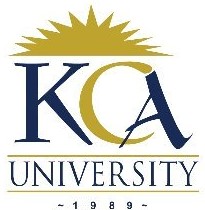
UNIVERSITY EXAMINATIONS: 2017/2018
EXAMINATION FOR THE DEGREE OF BACHELOR OF SCIENCE IN
INFORMATION TECHNOLOGY / BACHELOR OF BUSINESS IN
INFORMATION TECHNOLOGY
BIT 4401/BUSS 201: KNOWLEDGE MANAGEMENT
FULL TIME/PART TIME
DATE: DECEMBER, 2017 TIME: 2 HOURS
INSTRUCTIONS: Answer Question One & ANY OTHER TWO questions.
QUESTION ONE (Compulsory)
a) Differentiate between knowledge management and knowledge engineering? (4 Marks)
b) Identify three trends that will highlight the future of knowledge management (6 Marks)
c) Describe the link between personal learning and organizational learning? (4 Marks)
d) What will ensure the success of KM in an organization? (4 Marks)
e) A knowledge audit helps the audited organization to determine what knowledge is being
managed and how well it is being managed. Describe with illustrations any knowledge
audit model that an organization can adopt in its KM initiatives. (6 Marks)
f) Using relevant examples describe how the following categories of KM tools are used
(6 Marks)
i. Tools for knowledge externalization
ii. Tools for knowledge combination
iii. Tools for knowledge internalization
QUESTION TWO
a) Discuss critically how an understanding of managing knowledge through history can help
you manage knowledge today. (10 Marks)
b) Briefly explain the strategies adopted by the organisation in sustaining knowledge culture
(6 Marks)
c) Discuss how KM translates into savings/expenses for the organization? (4 Marks)
QUESTION THREE
a) Discuss the trends that will highlight the future of knowledge management (8 Marks)
b) Knowledge based Systems (KBSs) are developed to deal with particular application
domains in which alternative techniques are unable to produce reliable and manageable
solutions. Identify and discuss five aspects of human intelligence that could be used to
characterise intelligent knowledge-based systems. (10 Marks)
c) Identify at least four knowledge capture techniques (4 Marks)
QUESTION FOUR
a) Develop an argument either in favour of or against the preference for KBS over
conventional IT systems. (10 Marks)
b) Discuss the broad implications for KBS arising from the introduction of cloud computing
techniques that provide intelligent computing power over the internet.
(10 Marks)
QUESTION FIVE
a) Describe three types of knowledge assets (6 Marks)
b) Describe atleast four perspectives on an organisational memory system (8 Marks)
c) Using examples to illustrate your answers, explain the differences between the following
concepts: (6 Marks)
i) Procedural and declarative knowledge.
ii) Semantic and episodic knowledge
iii) Tacit and explicit knowledge
